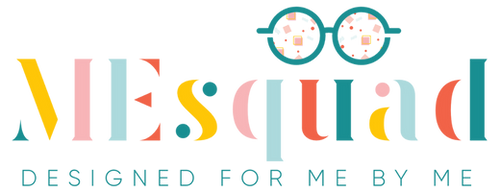As the highly anticipated solar eclipse approaches on April 8, 2024, it's important to be informed about how to witness this fascinating celestial event safely.
While experiencing a solar eclipse can be an unforgettable moment, it's crucial to remember that protecting your eyes and your children's vision is paramount.
In this article, we will guide you through the dos and don'ts of observing the solar eclipse, with particular attention towards safeguarding kids' eyesight.
When preparing for the solar eclipse, one of the primary concerns is ensuring proper eye protection.
Your regular sunglasses won't be enough to keep your eyes safe from the sun's intense rays.
Instead, invest in certified solar eclipse glasses for you and your children. These glasses will allow you to observe the event safely without risking your eyesight.
Proper eye protection is especially vital for kids, as their young eyes are more susceptible to damage from harmful rays.
Along with securing the appropriate protective eyewear, you must educate your children on proper viewing techniques and the importance of not looking directly at the sun without protection.
This will help them better understand the significance of following safety guidelines during the solar eclipse.
By being informed and prepared, you and your family can safely enjoy this awe-inspiring event while minimizing potential risks to your eyesight.
Understanding a Solar Eclipse
A solar eclipse is a celestial event that occurs when the moon passes between the sun and Earth, casting its shadow on Earth's surface.
This captivating event can have varying effects depending on the type of eclipse and the viewer's location.
In this section, we will discuss the types of solar eclipses and important safety tips for viewing them, especially regarding protecting your children's vision.
Types of Solar Eclipses
There are three main types of solar eclipses, each with its unique characteristics:
-
Total solar eclipse: This occurs when the moon entirely covers the sun's disk, making the sun's corona, or outer layer, visible to viewers within the path of totality. The sky becomes dark as if it were nighttime.
-
Partial solar eclipse: When the moon only partially covers the sun's disk, it results in a partial eclipse. For viewers outside the path of totality, the sun appears to have a bite taken out of it.
-
Annular solar eclipse: In this case, the moon is at its farthest point in its orbit around Earth, making it appear smaller in the sky. It does not completely cover the sun's disk, resulting in a ring of sunlight around the moon's silhouette. This is also known as the "ring of fire" effect.
On April 8, a solar eclipse will be visible from a specific path across North America, and millions will experience this remarkable phenomenon.
Safety Tips for Viewing
Solar eclipses, while fascinating, can potentially impact your children's vision if proper safety precautions aren't followed. Here are some essential tips to protect your kids' eyes while enjoying this rare event:
-
Never look directly at the sun: Looking directly at the sun during any eclipse stage can cause severe eye damage, such as solar retinopathy, which can harm your children's vision. Use proper protective eyewear throughout the event.
-
Use certified eclipse glasses: To ensure the safety of your kids' eyes, use certified eclipse glasses or handheld solar viewers that meet the ISO 12312-2 international safety standard.
-
Refrain from attempting to use sunglasses, smoked glass, or homemade filters: These are not sufficient to protect your eyes.
-
Please supervise your children: Observe them closely during the eclipse, ensuring they use protective eyewear correctly and not peeking around the edges of their glasses.
-
If your child is using a handheld solar viewer, remind them to keep it securely in place in front of their eyes.
Eclipse Safety for Children's Vision
As the solar eclipse on April 8 approaches, it's essential to keep children's vision safe while they witness this incredible phenomenon.
This section will discuss the importance of proper eye protection and how to choose the right viewing equipment for your children.
Importance of Proper Eye Protection
Looking directly at the sun during a solar eclipse can cause severe damage to your child's eyes, even resulting in permanent disability. The powerful ultraviolet rays can harm the retina, leading to solar retinopathy.
To ensure your child's eyes remain safe during the eclipse, follow these pointers:
-
Never allow your child to look directly at the sun without proper eye protection.
- Supervise your child throughout the event.
Choosing the Right Viewing Equipment
You must provide the correct viewing equipment to keep your child's eyes safe during the eclipse. Here's what you need to know:
-
Eclipse glasses: Get certified eclipse glasses designed explicitly for safely viewing solar eclipses. Regular sunglasses, even polarized ones, will need to provide more protection.
-
Ensure proper fit: The eclipse glasses should fit snugly on your child's face and completely cover their eyes. This provides complete protection from the sun's rays.
-
Inspect the glasses: Check the glasses for any scratches, tears, or signs of damage. Damaged glasses should not be used.
-
Alternative methods: If eclipse glasses are not available, you can view the eclipse safely using a pinhole projector.
Activities and Engagement for Kids
Educational Activities
Engaging in educational activities can help make the solar eclipse experience more enjoyable for kids.
One great activity is building a solar eclipse model with your children using simple materials. This will help them understand the workings of a solar eclipse and create an opportunity for bonding.
Another fun idea is to make solar eclipse bracelets together with your kids.
These bracelets can help them identify the various stages of the solar eclipse and provide a fun keepsake of this astronomical event.
You can also engage your children in creating their eclipse-themed paper masks to wear during the event.
They can decorate their masks to look like their favorite character, superhero, or anything their imagination comes up with.
Solar Eclipse Viewing Events
To ensure the safety of your kids' vision during the solar eclipse, it is essential to organize proper viewing activities.
One idea is to make a pinhole viewer with your children.
This simple project can be made from a shoebox, some foil, and a pin. It allows people to safely observe the eclipse without directly looking at the sun.
Another option is to attend organized eclipse viewing events specifically designed for kids.
These events sometimes offer additional educational resources and activities, helping make the experience safe and educational for your children.
Post-Eclipse Eye Care
Recognizing Vision Problems
After watching the solar eclipse on April 8, you must be aware of any changes in your child's vision.
Some common signs to look for include:
- Difficulty focusing on objects
- Eye discomfort or pain
- Sensitivity to light
-
The appearance of a central blind spot
- Distorted vision or blind spots in peripheral vision
Remember, a solar eclipse can cause temporary or permanent eye damage if proper precautions, like using special solar filter glasses, are not taken.
When to Seek Professional Help
If you notice any of these symptoms in your child after viewing the solar eclipse, don't hesitate to seek professional help.
Schedule an appointment with an eye care professional, like an optometrist or ophthalmologist, as soon as possible.
Early detection and intervention can help minimize any potential long-term damage.
In the meantime, you can help protect your child's vision by:
- Encouraging them to rest their eyes
- Reducing their exposure to bright lights or screens
- Offering over-the-counter pain relievers for eye discomfort, if needed (but consult with your healthcare provider before giving any medication to children)
By closely monitoring your child's vision after the solar eclipse and seeking the appropriate care if needed, you can help ensure their eye health remains in good shape.


